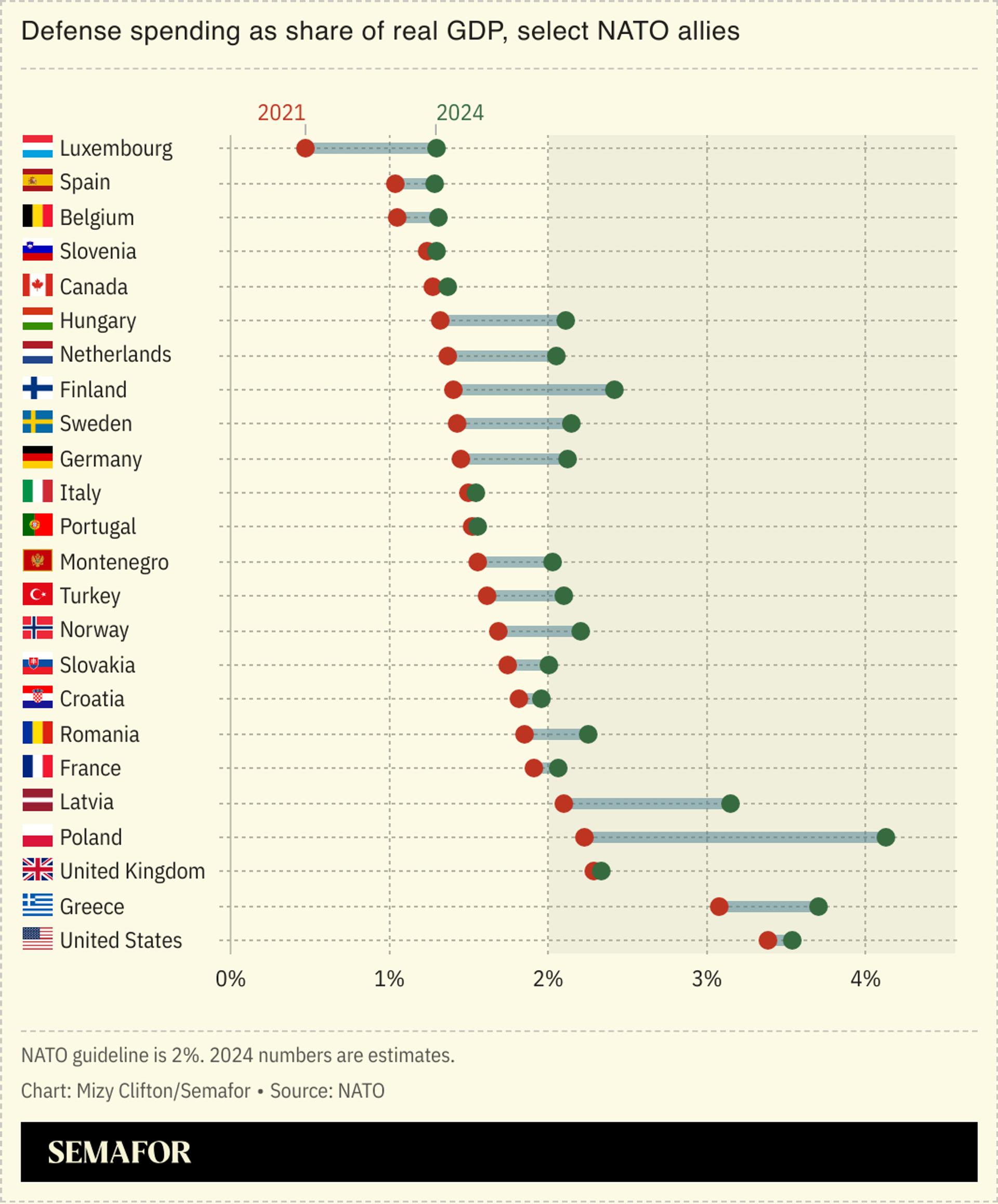The News
NATO needs to “shift to a wartime mindset” amid the rising threat posed by Russia, the head of the alliance said.
Members should allocate much more than 2% of their GDP to defense spending, Secretary General Mark Rutte argued in a speech in Brussels on Thursday, warning of a “coordinated campaign to destabilize our societies,” including through cyberattacks and assassination attempts. “We are not ready for what is coming our way in four to five years,” he said.
SIGNALS
Forget ‘Trump-proofing’ NATO — the real threat is Putin
US President-elect Donald Trump’s criticism of member countries who haven’t met the defense spending target has created new urgency in Europe to take defense more seriously. But “the biggest threat to the alliance″ is Putin, not Trump, a Europe expert argued for the Center for Strategic and International Studies: It’s important to focus instead on two major geopolitical shifts, namely the return of Russian revanchism and the military rise of China. “For Putin, it is all about the US president, until the Europeans prove him wrong and show that they are sovereign in terms of their own security,” another expert argued for the Carnegie Endowment for International Peace.
European progress on defense spend likely stalled by Germany’s political uncertainty
A “record number” of NATO allies — 23 — have stepped up to meet defense spending targets since Russia’s full-scale invasion of Ukraine, up from just six countries in 2021, the Atlantic Council noted. Members are now weighing hiking their defense spending benchmark to 3% of GDP in 2025, the Financial Times recently reported. German defense expenditure, meanwhile, remains low, owing to political and legal rather than financial constraints, a geopolitics expert argued in Internationale Politik Quarterly. With the collapse of Chancellor Olaf Scholz’ coalition, any European progress on defense spending is “now well and truly stalled” until elections in February, two Europe experts wrote for Chatham House.


